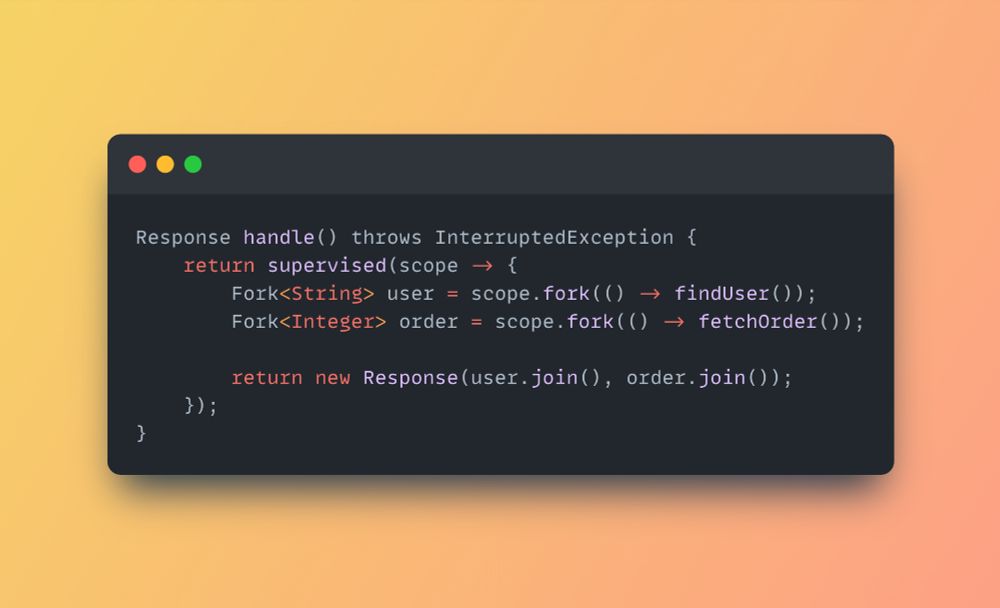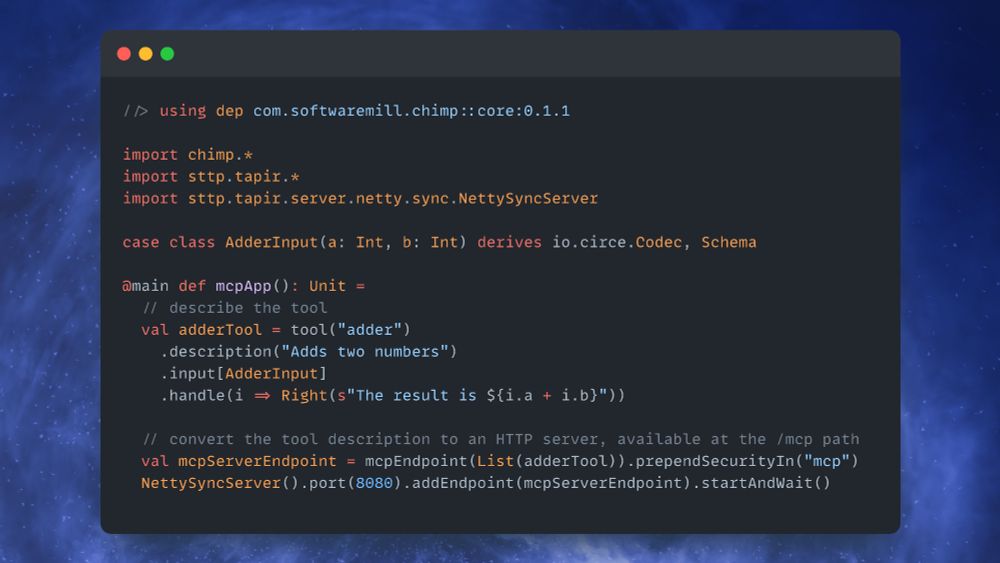These are all great subjects for a @rustikon.dev session. The c4p ends soon!

These are all great subjects for a @rustikon.dev session. The c4p ends soon!
I can only confirm what it says on the citation, his work deeply impacted how I view programming.
Let's work towards making #Scala a continued success!

I can only confirm what it says on the citation, his work deeply impacted how I view programming.
Let's work towards making #Scala a continued success!


Speaking of Scala conferences… if anything inspired you at ScalaDays, maybe it would make a good talk for @scalar-conf.com? The c4p is closer than you think ;)




Speaking of Scala conferences… if anything inspired you at ScalaDays, maybe it would make a good talk for @scalar-conf.com? The c4p is closer than you think ;)

I've added Ox & Pekko to a couple of benchmarks - the results are varied. Ox holds well in streaming, in other areas the benchmarks often really test the JVM & virtual threads.




I've added Ox & Pekko to a couple of benchmarks - the results are varied. Ox holds well in streaming, in other areas the benchmarks often really test the JVM & virtual threads.

1. proxying to a service available via HTTP: github.com/softwaremill...
2. exposing multiple tools: github.com/softwaremill...

1. proxying to a service available via HTTP: github.com/softwaremill...
2. exposing multiple tools: github.com/softwaremill...
This includes both streaming byte-bodies (as request & response), SSE (Server Sent Events) as well as handling WebSockets as streams of frames.

This includes both streaming byte-bodies (as request & response), SSE (Server Sent Events) as well as handling WebSockets as streams of frames.
* `selectWithin` which guarantees that no elements are received from channels on timeout
* more `Flow` operators: `split` & `splitOn`

* `selectWithin` which guarantees that no elements are received from channels on timeout
* more `Flow` operators: `split` & `splitOn`



Firstly, Ox no longer uses preview JVM features, specifically `StructuredTaskScope`s and `ScopedValue`s. Stabilization of these seems quite far off, and Ox now works with any JVM 21+.


Both implement the same logic: run `findUser` and `fetchOrder` in parallel, and combine their results. Any failure interrupts the other tasks, and when they terminate, propagates the exception.


Both implement the same logic: run `findUser` and `fetchOrder` in parallel, and combine their results. Any failure interrupts the other tasks, and when they terminate, propagates the exception.


Destiny! ;)

Destiny! ;)
Simpler types, shorter names, fewer type parameters, clearer error messages, better IDE integration - these are the driving factors of the new stable release.

Simpler types, shorter names, fewer type parameters, clearer error messages, better IDE integration - these are the driving factors of the new stable release.






